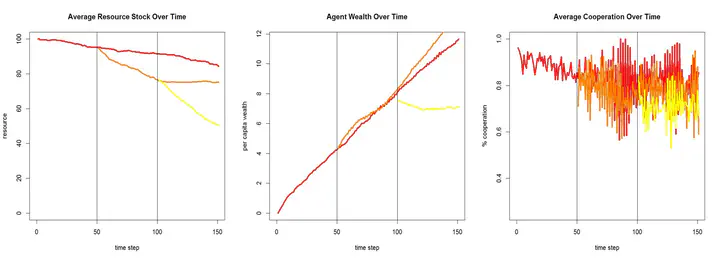Influence of sea level rise on discounting, resource use and migration in small-island communities: an agent-based modelling approach
 Agent-based model: Simulation results
Agent-based model: Simulation results
Abstract
Time discounting – the degree to which individuals value current more than future resources – is an important component of natural resource conservation. As a response to climate change impacts in island communities, such as sea level rise, discounting the future can be a rational response due to increased stress on natural resources and uncertainty about whether future generations will have the same access to the same resources. By incorporating systematic responses of discount rates into models of resource conservation, realistic expectations of future human responses to climate change and associated resource stress may be developed. This paper illustrates the importance of time discounting through a theoretical agent-based model of resource use in island communities. A discount rate change can dramatically change projections about future migration and community-based conservation efforts. Our simulation results show that an increase in discount rates due to a credible information shock about future climate change impacts is likely to speed resource depletion. The negative impacts of climate change are therefore likely to be underestimated if changes in discount rates and emerging migration patterns are not taken into account.